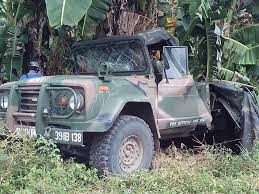
Recent coups d’état in the Sahel region have presented again the idea of an ungovernable Africa, still facing post-independence struggles. Yet, the African continent is not the sole example of a difficult democratization process. During the Cold War, even South America faced many golpes. Indeed, military coups are often advanced with the purpose of ending state-sponsored political interferences and other times it is the foreign governments that are responsible for the financing or leading of the coup d’état. The CIA was involved in several South American countries golpes, in 1954 in Guatemala, in 1961 in Cuba, in 1964 in Brazil and later in Argentina, Chile, Nicaragua and Venezuela. Instead, the 1991 military coup d’état in Haiti was conducted by the army in order to destitute the first democratically elected President Aristide and was, theoretically, the only South American coup that the US did not plan. On the other side of the world, Africa has had more than a hundred successful military coups d’état since 1950, mainly to complain about the way things were administered, and many occurred just in the last three years, concentrated in the Sahel zone. 2020 in Mali, 2021 in Sudan, Chad and Guinea, 2022 in Burkina Faso and 2023 in Niger and Gabon.
Military coups are therefore not a recent phenomenon but economic crises and increased armed missions have enlightened the revolutionary flame of many African people, who hope the violence would finally settle their national instability. Even in South America tensions are high, also due to the many active foreign operations to block drug trafficking. The first thing to assume about military coups d’état is hence the use of violence and the second is probably the trace of past colonial influences. Indeed, the US have always tried to deceive South American populations by controlling their governments and avoiding socialist and all the left-wing parties that could have sided them with the Soviet Union. In Africa, albeit less visible, former colonial powers like France and the United Kingdom continued their foreign policies jeopardizing these countries’ ability to create political stability. Anyways, both continents faced also corruption and high levels of criminality, citing the terrorist groups threat as well. They were anyway not free to decide their own destiny and they did not know how to enforce democracy with national tools. Internal and external actors manipulate these governments and enhance coups d’état, which become just other precedents of future cases. For instance, coups d’état are meant every time to be the last ones but the temporary juntas established as transit to democracy end up being permanent, or until another coup takes place. Political violence has never proven to be the right move to achieve economic progress, freedom and a stable democratic governance. Nevertheless, this is also the only way local citizens can raise their voices about political matters, foster change and hope there will be a better future.
Consequently, other states like the previous colons get involved in these situations but have not yet succeeded in bringing definitive peace. Many missions of this sort have been announced and praised in the Western part of the world as solidaristic interventions, but never enough space for action has been given to local communities and civic organizations working with the country’s society. Both Africa and South America have developed supranational organizations, on the UN and EU track, to cooperate on crises and take decisions collectively without the involvement of the United States or the European countries. To name a few there are the CELAC (Comunidad de Estados Latinoamericanos y Caribeños) and the UNASUR (Unión de Naciones Suramericanas) for South America and the AU (African Union) and the ECOWAS (Economic Community of West African States) for Africa. Nonetheless, these institutions do not have a strong power over their countries. Even though, the AU and ECOWAS pressured the military junta installed in Mali after the coup to accept the formation of a transitional government led by civilians and retired officers and plan general elections for the next year. Through the Lomé Declaration of 2000, the African Union should also suspend any member states involved in unconstitutional change in government but known is the fact that the institution lacks cheek and is in turn reprimanded by the European Union and the United Nations. However, these underdeveloped countries still need the contribution of the US of the European states to catch international attention over their situations and receive economic financing for investments in society and institutions as well as humanitarian assistance.
References
https://www.aljazeera.com/news/2023/8/30/mapping-africas-coups-detat-across-the-years
The European Institute for International Law and International Relations














